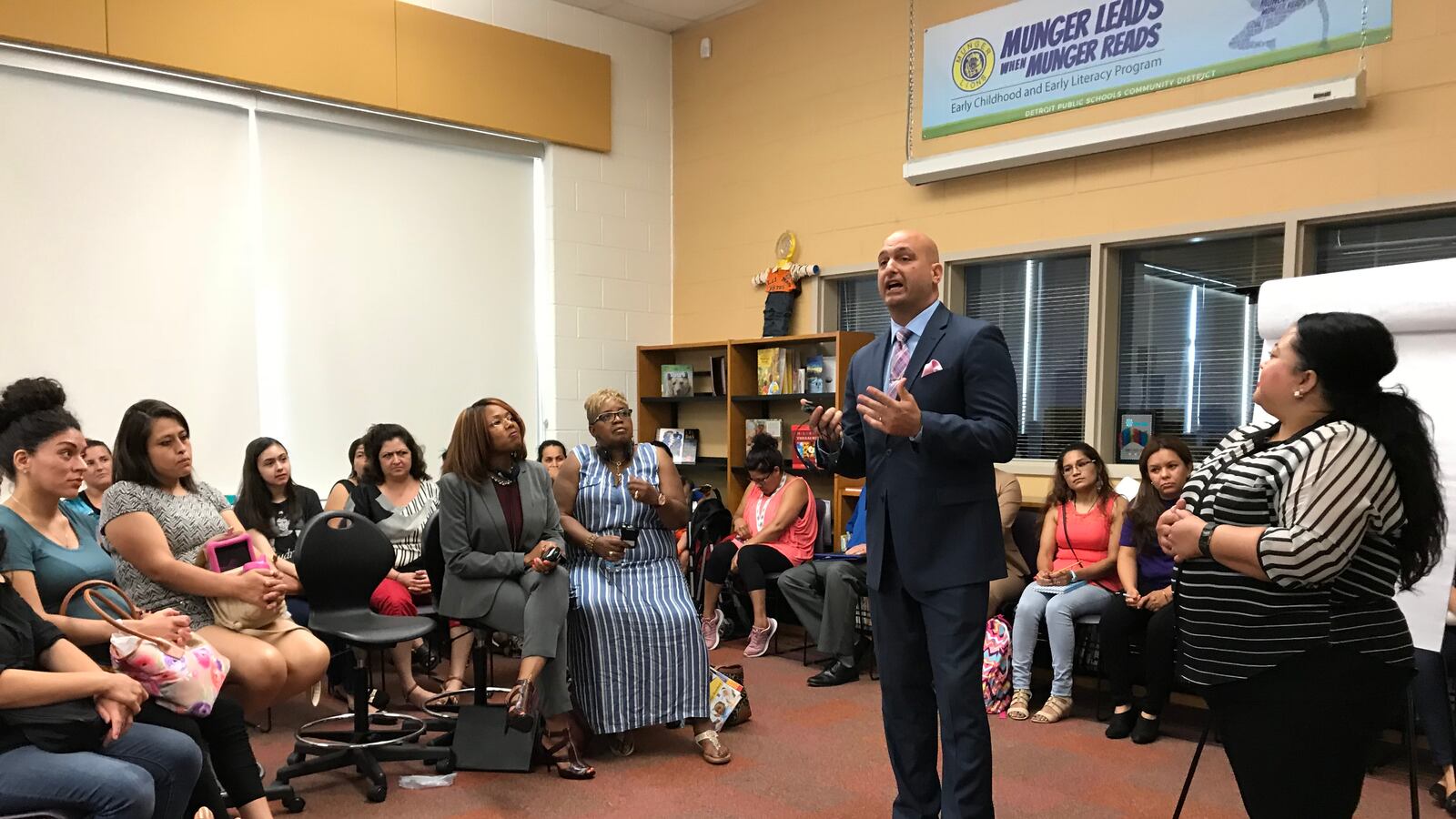One by one, the parents who stood in the library of a Southwest Detroit elementary school turned to the district’s superintendent and told him heartbreaking stories of a school system they say has failed them.
Speaking primarily in Spanish through a translator, the parents described miscommunications in schools where nobody knows their language.
One woman teared up as she described her struggle to find out what happened after her son was injured in school. Another said her son’s learning disability went undiagnosed for years while her pleas for help went unanswered. Others told of run-ins with principals, and of school security guards who didn’t realize how alarming it is for immigrant parents to be asked for identification when they come into their children’s schools.
The speakers were members of parent and community groups who had requested a meeting with Detroit schools Superintendent Nikolai Vitti to discuss a range of concerns for Spanish-speaking parents.
They walked away with a list of promises from Vitti who says there’s a lot the district can do to better meet the needs of these families.
“I want you to hold me accountable,” Vitti told the several dozen parents who were assembled for the community forum at Munger Elementary-Middle School on Monday afternoon.
He then rattled off a list of measures he planned to take to address their concerns. Among them, Vitti said he would:
- Establish a Spanish hotline that parents can call to get help from the district in their native language;
- Ensure that every school with Spanish-speaking children has someone in the office who speaks Spanish;
- Provide translation services to parents during meetings about the extra supports for children with disabilities;
- Create a bilingual task force to address the needs of non-English speaking families;
- Conduct an audit of school security guards to make sure the people stationed in Spanish-speaking neighborhoods are able to speak the language;
- Develop a new parent identification process so that parents can access their children’s schools without being asked to present a government ID, making it easier for undocumented parents to participate in their children’s education; and,
- Hire Spanish speakers for his communications staff to better spread district news through social media and phone calls.
Some of those items, like providing translators during meetings about special education, are required by law. Others, like establishing a hotline, seem like basic measures for a district like Detroit where more than 13 percent of students are Hispanic and 12 percent of students speak a language other than English at home.
But Vitti acknowledged that a lot of basic structures in the district are still being rebuilt after years of financial crises and oversight by state-appointed emergency managers.
“The commitment to do it wasn’t there,” he said.
Monday’s meeting came about, he said, because the district was regularly hearing from parents in Southwest Detroit about problems they were having.
“It was starting to become a theme and we felt we just needed to have one unified conversation and begin a momentum of more direct engagement with the community,” Vitti said.
Monday’s meeting was his first major sit-down with Spanish-speaking families since his arrival in Detroit last year. Vitti, who was there for two hours, promised to return for another meeting this fall to update the parents on the progress he’s made.
“Sometimes it’s hard for me to sit and listen to these stories because our school system has to do better for children,” Vitti told the parents as he finished listing the changes he said he would make. “I’m committed to doing better as a school system for all the parents here, but we have to do this together. Tell me what’s broken and tell me what’s wrong but also come with a solution and let’s all work together to make this a better district and a better community.”
Vitti also urged the parents to vote in the upcoming gubernatorial election adding that “it’s very clear who the candidate is who supports public education.”
Parents said they were grateful to have gotten an audience with Vitti and are hopeful that change will come.
“I’m still skeptical because the system is so broken,” said Maria Salinas who leads the Congress of Communities, one of the groups that organized the forum. “We’ve been given a lot of promises that didn’t come through” in the past … “but Vitti is giving us some hope.”

